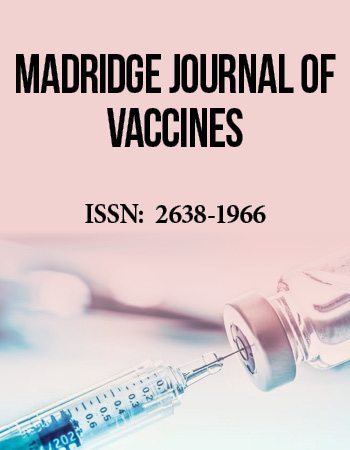International Conference on Vaccines
Feb 20-22, 2017 | Baltimore, USA
The Dual Role of RIP2 Kinase in a murine model of dermatophagoides farinae asthma
1University of Central Florida, Burnett School of Biomedical Sciences, USA
2University of North Carolina – Chapel Hill School of Medicine, USA
Allergens are comprised of a heterogeneous group of substances, which, despite being structurally and functionally diverse, can elicit very similar downstream type 2 adaptive immune responses. How this is accomplished is not completely understood. Elucidating the innate immune mechanisms involved in responding to these disparate stimuli may help guide the development of vaccines or therapies for type 2 disorders. One of the few innate immune receptors that have been reported to elicit type 2 adaptive immune responses is the peptidoglycan sensor NOD2. In this study, we examine the role played by the effector kinase RIP2, which mediates signaling downstream of the NOD2 receptor. Using an in vitro culture model of primary murine tracheal epithelial cells and in vivo model of Dermatophagoides farinae mediated allergic airway inflammation in combination with WT or RIP2 KO mice, we find that RIP2 plays dual roles in both regulating and contributing to allergic airway disease.
We show that in airway epithelial cells, RIP2 is tyrosine phosphorylated in response to exposure with extracts of Dermatophagoides farinae. Loss of RIP2 results in a reduction in inflammatory chemokine and cytokine production upon stimulation with low doses of D. farinae but an exaggerated response upon stimulation with higher doses of allergen. Using the D. farinae asthma model, we demonstrate that loss of RIP2 leads to a reduction in lymphocyte and eosinophil recruitment, but results in increased airway hyperresponsiveness in response to challenge with methacholine. These data illustrate the complexity of studying innate immune signaling pathways in a type 2 mediated disease such as asthma and cautions the use of inhibitors of RIP2 kinase for such disorders.
Biography:
Dr. Justine Tigno-Aranjuez received her B.S. in Molecular Biology and Biotechnology from the University of the Philippines. She received her PhD. in Pathology from Case Western Reserve University studying the role of adjuvants in shaping T cell responses. She continued at Case Western as a Postdoctoral Fellow and Instructor doing research on the posttranslational control of signaling mediated through the bacterial peptidoglycan sensor NOD2. She is currently an Assistant Professor at the University of Central Florida and continues to study innate immune signaling pathways in inflammatory diseases.
She has published in journals such as Genes & Development, Molecular and Cellular Biology, Cell Reports, The Journal of Immunology, and the Journal of Biological Chemistry. While at Case Western University, she also filed 2 patents in which she was 50% co-inventor. She has been the recipient of an American Cancer Society Postdoctoral Fellowship, an NIDDK NRSA F32 award, and is currently NHLBI K99/R00 recipient.


